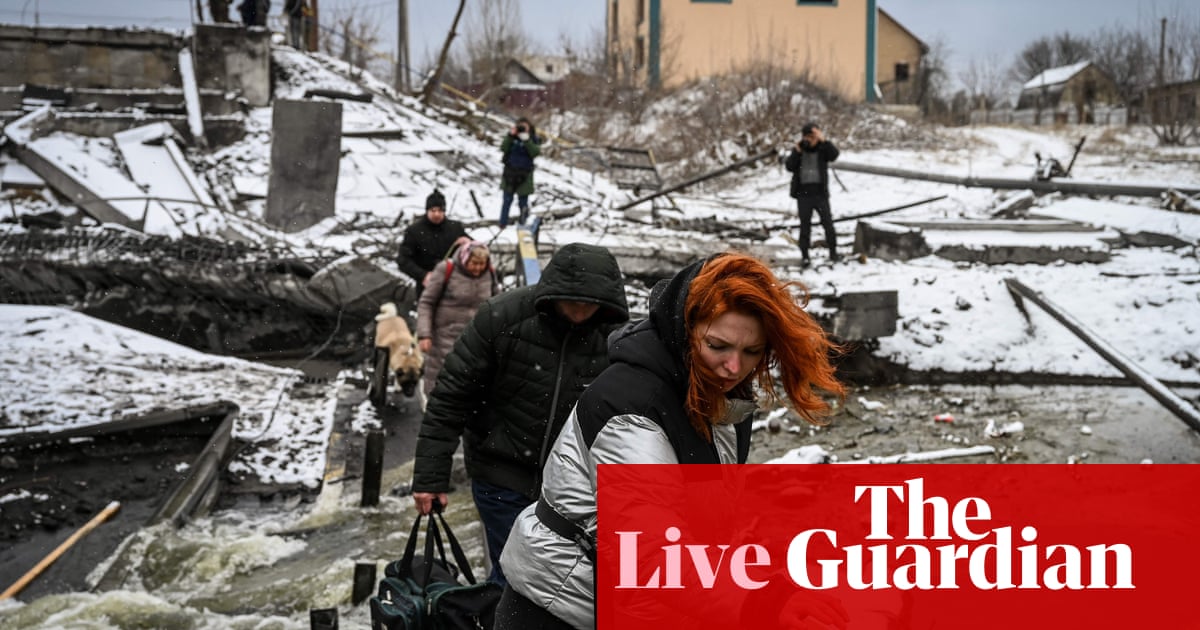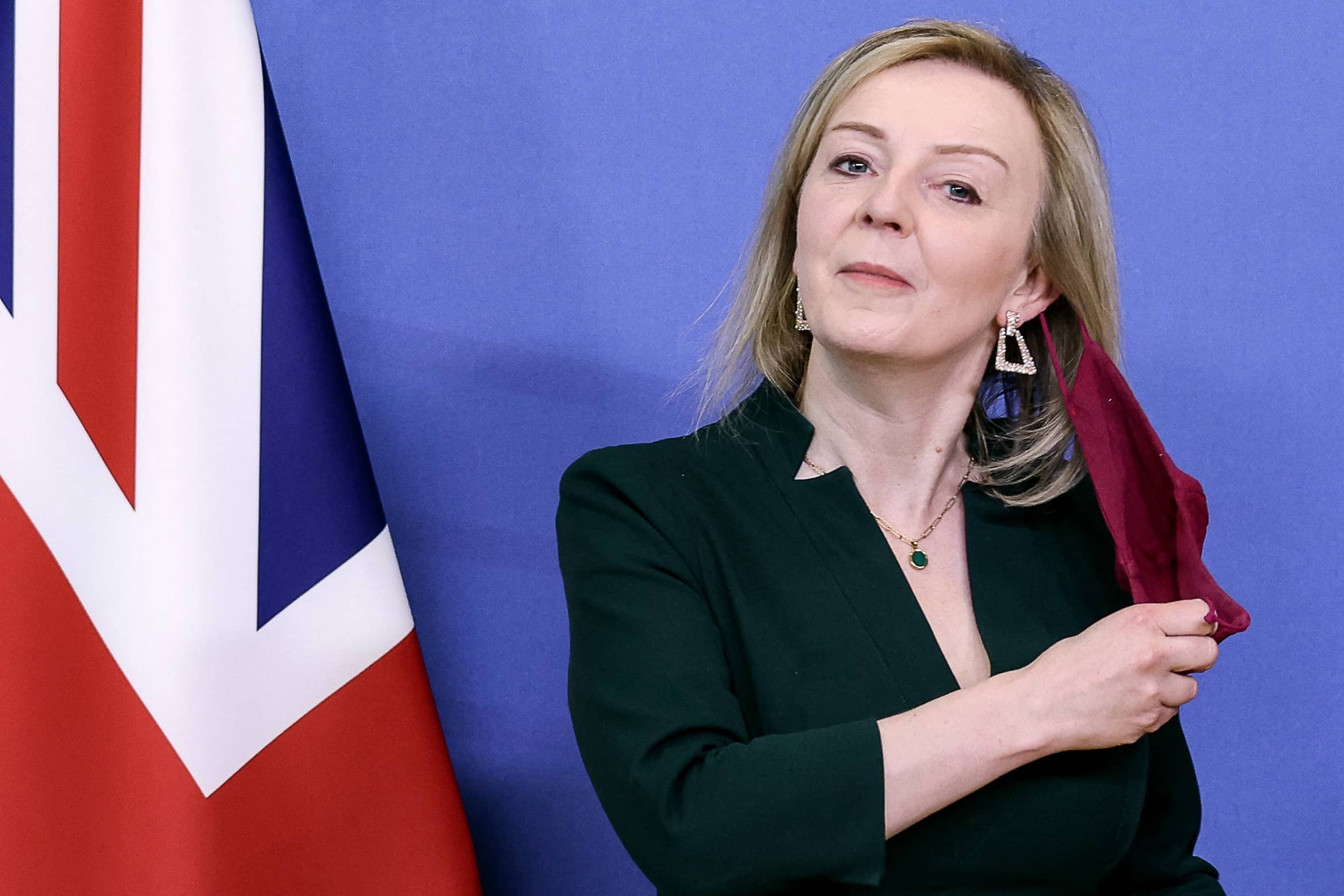Nationalism and fascism in Ukraine: A historical overview
Part one
9 June 2014
PART ONE |
PART TWO
This is the first part of a two-part article.
The Western media is seeking to downplay the prominent role of fascists in the new Ukrainian government. Several of the regime’s ministries are headed by members of the far-right Svoboda party, and the militias of the neo-fascist Right Sector are active in violently repressing resistance in the east of the country.
Both Svoboda and Right Sector played a crucial role in the February 22 coup in Kiev, which was strongly backed by Berlin and Washington. This is no coincidence. The close collaboration of Germany and the US with Ukrainian fascists has a long history, reaching back over the last hundred years.
The roots of Ukrainian nationalism
In contrast to many other European countries, there has never been a strong bourgeois national movement in Ukraine. Ukraine has been divided between Poland and Russia since the late Middle Ages. After the carve-up of Poland at the end of the eighteenth century, Ukraine became part of the Russian Empire. Only a section of what is now western Ukraine was integrated into the Hapsburg Empire.
The weakness of the Ukrainian national movement was due on the one hand to the country’s economic backwardness and lack of a strong middle class. Significant industrialisation occurred only in the era of the Soviet Union. On the other hand, a large proportion of the urban population consisted of Russians, Germans and Jews, while the rural population was mainly Ukrainian.
When bourgeois forces finally erected a Ukrainian nation-state, following the 1917 February Revolution’s overthrow of the tsar in Russia, they were immediately confronted with a revolutionary working class. The Bolsheviks, who seized power in Russia in October, received powerful support from the workers of Ukraine. Ever since then, bourgeois nationalism in Ukraine has been characterised by virulent anti-communism, pogroms against revolutionary workers and Jews, and attempts to win the support of imperialist powers.
The Social Democratic-dominated Rada (parliament), which proclaimed Ukraine’s independence in January 1918, tried to reach an agreement with Germany. After the Treaty of Brest-Litovsk, however, the Soviet government was forced to cede Ukraine to Germany. When German troops marched into the country, the military dispensed with the Rada and established a dictatorship under Hetman (pre-eminent military commander) Pavlo Skoropadskyi, a landowner and former tsarist general. Skoropadskyi proceeded to make Kiev a rallying point for extreme right-wing and anti-Semitic politicians and military officers from all over Russia. (See:
Anti-Semitism and the Russian Revolution: Part two)
Germany’s defeat in the First World War led to its forced retreat from Ukraine. Bloody battles engulfed Ukraine during the ensuing civil war in Russia. Supported by Western powers on Ukrainian soil in its fight against the Soviet government, the volunteer army under General Denikin committed horrific crimes and organised anti-Jewish pogroms. An estimated 50,000 Jews were murdered by the Whites in the second half of 1919 alone.
Symon Petliura, one the many Social Democrats who became nationalists, headed a directorate that took power in Kiev. This body also sought the backing of the Western powers in its war against the Soviet government and was responsible for the murder of more than 30,000 Jews. Both Petliura and Stepan Bandera, who emerged later as a leading figure, are regarded as role models by present-day Ukrainian nationalists.
https://www.wsws.org/en/special/pages/stop-the-drive-to-world-war-three.html
Lenin advocated self-determination for Ukraine, and this democratic demand played a crucial role in winning the oppressed Ukrainian workers and peasants to the side of the Bolsheviks, who eventually won the civil war in 1921. In 1922, the Ukrainian Soviet Socialist Republic officially became part of the newly formed Soviet Union. However, western Ukraine remained under Polish rule.
Genuine independence from imperialism and development of national culture were possible in Ukraine only during the early years of the Soviet Union. These advances emerged from Lenin and Trotsky’s nationalities policy, which conceded to the nations within the Soviet confederation a comprehensive right to self-determination. The oppression of nationalities, as was common in the tsarist empire, was decisively rejected by the Bolsheviks.
The cultural life and material living standards of the Ukrainian masses underwent a dramatic improvement in the 1920s. The illiteracy rate declined sharply, as educational institutions and universities were established throughout the country. The Ukrainian language and culture were widely promoted, and this greatly stimulated intellectual life. As Leon Trotsky wrote in 1939, thanks to this policy, Soviet Ukraine became extremely attractive to the workers, peasants and revolutionary intelligentsia of western Ukraine, which remained enslaved by Poland.
However, the rise of the Stalinist bureaucracy brought an end to this nationalities policy. Lenin had attacked Stalin because of his centralist and bureaucratic tendencies in relation to the Georgian and Ukrainian questions. But after Lenin’s death, Stalin became increasingly ruthless in his attacks on non-Russian nationalities.
“The bureaucracy strangled and plundered the people within Great Russia, too,” wrote Trotsky in 1939. “But in the Ukraine matters were further complicated by the massacre of national hopes. Nowhere did restrictions, purges, repressions and in general all forms of bureaucratic hooliganism assume such murderous sweep as they did in the Ukraine in the struggle against the powerful, deeply-rooted longings of the Ukrainian masses for greater freedom and independence.” [1]
The Ukrainian peasants were particularly affected by the forced collectivisation of the late 1920s and early 1930s. Approximately 3.3 million people fell victim to this policy.
The devastating consequences of the nationalist polities of the Stalinist bureaucracy strengthened “nationalist underground groups… which were led by fanatical anti-Communists, successors of Petliura’s supporters and forerunners of Bandera’s people,” writes Vadim Rogovin in his book
Stalin’s War Communism. [2]
Stalin’s murderous policies of repression played into the hands of Ukrainian nationalists and fascists, who agitated in the western parts of the divided Ukraine and collaborated with Hitler when he invaded the Soviet Union in 1941. Despite the crimes of Stalinism, however, the great majority of Ukrainians fought in the Red Army to defend the Soviet Union.
The crimes of the Ukrainian fascists in World War II
Among the most significant organisations that collaborated with the Nazis was the Organisation of Ukrainian Nationalists (OUN). Its members were recruited mainly from veterans of the Civil War who had fought on the side of Petliura against the Bolsheviks.
During the 1930s, the OUN carried out numerous terrorist attacks in Ukraine, Poland, Romania and Czechoslovakia. Its ideological head was Dmytro Dontsov (1883-1973), who became one of the leading ideologues of the Ukrainian extreme right-wing through his journalistic activities, among which were Ukrainian translations of Mussolini’s
Dottrina del Fascismo (
The Doctrine of Fascism ) and excerpts from Adolf Hitler’s
Mein Kampf .
Dontsov had earlier developed his thesis of “amorality.” According to historian Frank Golczewski, this asserted the obligation “to collaborate with every enemy of Great Russia, regardless of their own political goals.” It “created an ideological justification for the subsequent collaboration with the Germans” and the lineup of Ukrainian nationalists behind the United States during the Cold War. [3]
In 1940, the OUN split into the Bandera (B) and Melnyk (M) factions, which bitterly fought each other. Bandera’s more extreme group was able to attract more followers than Melnyk’s. It began by establishing Ukrainian militia (the Roland and Nightingale Legions) on German-occupied territory in Poland which, in league with the Wehrmacht (German army), invaded the Soviet Union in June 1941.
After the withdrawal of the Red Army from areas conquered by the Germans, the legions and special militias acted as auxiliary troops in countless massacres of Jews. Following the entry of the OUN-B into Lviv on June 29, 1941, the Bandera militias (Nightingale Legion) unleashed murderous pogroms against the Jews lasting several days. Ukrainian militia continued massacring Jews in Ternopil, Stanislau (today Ivano-Fankisk) and other places. Documentary evidence relating to the first few days of the Wehrmacht’s advance reveals that about 140 pogroms were perpetrated in western Ukraine, in which 13,000 to 35,000 Jews were murdered. [4]
On June 30, 1941, Bandera and his deputy head of the OUN-B, Yaroslav Stetsko, proclaimed the independence of Ukraine in Lviv. Stepan Lenkavski, the OUN-B government’s director of propaganda, openly advocated the physical extermination of Ukrainian Jewry.
The Nazis used their Ukrainian collaborators to commit murders and acts of brutality that were too disturbing even for the SS units. For example, SS task force 4a in Ukraine confined itself to “the shooting of adults while commanding its Ukrainian helpers to shoot [the] children.” [5]
Dealing with Ukrainian and other collaborators in the Soviet Union was a controversial issue in the Nazi leadership. While Alfred Rosenberg, one of the main Nazis responsible for the Holocaust, urged greater involvement of local fascist forces, Hitler opposed the nationalists’ so-called independence projects. On Hitler’s orders, the OUN-B leaders were eventually arrested and the Ukrainian legions disarmed and relocated.
From 1942, the Ukrainian militia served the Third Reich in the “anti-partisan campaign” in Belarus, in the “security service,” and as armed personnel in concentration camps. Bandera and Stetsko remained in custody in Sachsenhausen concentration camp until September 1944.
When Hitler’s armies went into retreat after their defeat at Stalingrad, members of the OUN legions returned to Ukraine and formed the Ukrainian Insurgent Army (UPA) in 1943. Immediately after his release by the German authorities, Bandera headed back to Ukraine to lead the UPA.
The UPA was supplied with German weapons and attempted to implement an extensive ethnic cleansing program in order to create the conditions for an ethnically pure Ukrainian state. In 1943 and 1944, the UPA organised massacres that claimed the lives of 90,000 Poles and thousands of Jews. It also brutally terrorised, tortured and executed Ukrainian peasants and workers who wanted to join the Soviet Union. The UPA went on to kill some 20,000 Ukrainians before the insurrection was completely crushed in 1953.
To be continued
Notes
[1] Leon Trotsky, “
Problem of the Ukraine,” Trotsky Internet Archive
http://www.marxists.org/archive/trotsky/1939/04/ukraine.html
[2] Vadim Rogovin:
Stalins Kriegskommunismus, Essen 2006, p. 377
[3] Frank Golczewski:
Die ukrainische Emigration, (Hrsg.): Geschichte der Ukraine, Göttingen 1993, p. 236
[4] Per Anders Rudling: “The Return of the Ukrainian Far Right. The Case of VO Svoboda,” in: Ruth Wodak, John E. Richardson (ed.):
Analyzing Fascist Discourse: European Fascism in Talk and Text, London 2013, pp. 228-255. The article is accessible
online.
[5] Quoted in Christopher Simpson:
Blowback. America’s Recruitment of Nazis and Its Effects on the Cold War, London 1988, p. 25



